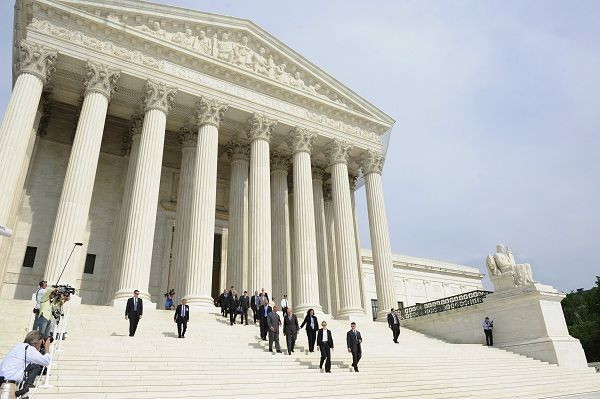US Supreme Court Rules That Generic Drug Makers Are Not Liable For Design Defects

The Supreme Court of the United States (SCOTUS) has issued a ruling today that reduces the liability of pharmaceutical companies that produce generics. The final judgment notes that companies, which produce medications that have already been approved by the Food and Drug Administration (FDA) and previously parented by other companies, cannot be sued for "defects in drug design."
The trial was brought before the Supreme Court, the highest court in the United States, because a patient, Karen Bartlett, previously had an adverse reaction to a prescription anti-inflammatory pain medication, also called non-steroidal anti-inflammatory (NSAID). The patient had taken a generic form of sulindac, also sold as Clinoril, which is made by Merck.
Bartlett had developed a serious adverse reaction — a condition called Stevens-Johnson syndrome/toxic epidermal necrolysis — to the medication, which she was prescribed for shoulder pain in 2004. As a result, over a period of three weeks, Bartlett had a hypersensitive reaction to the medication. When all was said and done, she had lost over 60 percent of the surface layer of her skin and suffered severe permanent vision loss.
She was previously awarded $21 million by a federal jury in New Hampshire in 2010. The current case was brought before the highest court of the land by Mutual Pharmaceutical Co, a unit of URL Pharma, which is owned by Sun Pharmaceutical Industries.
The Obama administration had supported Mutual Pharmaceuticals, stating that federal law supersedes state laws, because the FDA had approved the drug. Generic drugs have the same exact active chemical ingredient as their name brand equivalent, and are required to by federal law.
The court case Mutual Pharmaceutical v. Bartlett, U.S. Supreme Court, No. 12-142, was ruled in a 5-4 vote in support of Mutual. The previous $21 million judgment, was overturned as a result of the ruling.
Another important result of this decision is although both the federal government and state governments share responsibility for regulating prescription drugs, when regulations conflict, federal laws prevail. This has previously resulted in issues that leave pharmaceutical companies in no-man's land, unable to satisfy both federal and state regulations.
Sadly, Bartlett has no more recourse in her legal battle. Justice Sonya Sotomayor's final dissenting statement concludes that "the Court has left a seriously injured customer without any remedy despite Congress' explicit efforts to preserve state common-law liability."



























